Product Detail
Product NamePan-Cadherin Rabbit mAb
Clone No.ST54-01
Host SpeciesRecombinant Rabbit
Clonality Monoclonal
PurificationProA affinity purified
ApplicationsWB, ICC/IF, IHC, IP, FC
Species ReactivityHu, Ms, Rt
Immunogen Descrecombinant protein
ConjugateUnconjugated
Other NamesCadherin antibody CDH3 antibody CDHP antibody 7B4 antigen antibody Cadherin-1 antibody Cadherin-2 antibody Cadherin-3 antibody Cadherin-4 antibody Cadherin-5 antibody CAM 120/80 antibody CD144 antibody CD324 antibody CD325 antibody Cdh4 antibody CDH5 antibody CDHE antibody CDHN antibody E-cadherin antibody Epithelial cadherin antibody N-cadherin antibody NCAD antibody Neural cadherin antibody P-cadherin antibody Placental cadherin antibody UVO antibody Uvomorulin antibody Vascular endothelial cadherin antibody
Accession NoSwiss-Prot#:P12830
Uniprot
P12830
Gene ID
999;
Calculated MW140 kDa
Formulation1*TBS (pH7.4), 1%BSA, 40%Glycerol. Preservative: 0.05% Sodium Azide.
StorageStore at -20˚C
Application Details
WB: 1:1,000-5,000
IHC: 1:50-1:200
ICC: 1:50-1:200
FC: 1:50-1:100
Western blot analysis of Pan-Cadherin on different lysates using anti-Pan-Cadherin antibody at 1/1,000 dilution. Positive control: Lane 1: Human heart Lane 2: Mouse heart Lane 3: Rat heart
Immunohistochemical analysis of paraffin-embedded mouse liver tissue using anti-Pan-Cadherin antibody. Counter stained with hematoxylin.
Immunohistochemical analysis of paraffin-embedded mouse kidney tissue using anti-Pan-Cadherin antibody. Counter stained with hematoxylin.
ICC staining Pan-Cadherin in Hela cells (green). The nuclear counter stain is DAPI (blue). Cells were fixed in paraformaldehyde, permeabilised with 0.25% Triton X100/PBS.
Flow cytometric analysis of Hela cells with Pan-Cadherin antibody at 1/50 dilution (red) compared with an unlabelled control (cells without incubation with primary antibody; black). Alexa Fluor 488-conjugated goat anti rabbit IgG was used as the secondary antibody.
Cadherins comprise a family of Ca2+-dependent adhesion molecules that function to mediate cell-cell binding critical to the maintenance of tissue structure and morphogenesis. The classical cadherins, E-, N- and P-cadherin, consist of large extracellular domains characterized by a series of five homologous NH2 terminal repeats. The most distal of these cadherins is thought to be responsible for binding specificity, transmembrane domains and carboxy terminal intracellular domains. The relatively short intracellular domains interact with a variety of cytoplasmic proteins, such as -catenin, to regulate cadherin function. Members of this family of adhesion proteins include rat cadherin K (and its human homolog, cadherin, R-cadherin, B-cadherin, E/P cadherin and cadherin-5.
If you have published an article using product 48907, please notify us so that we can cite your literature.


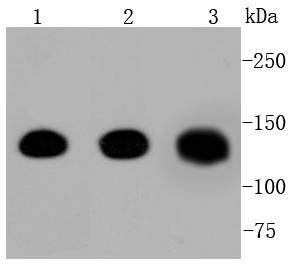
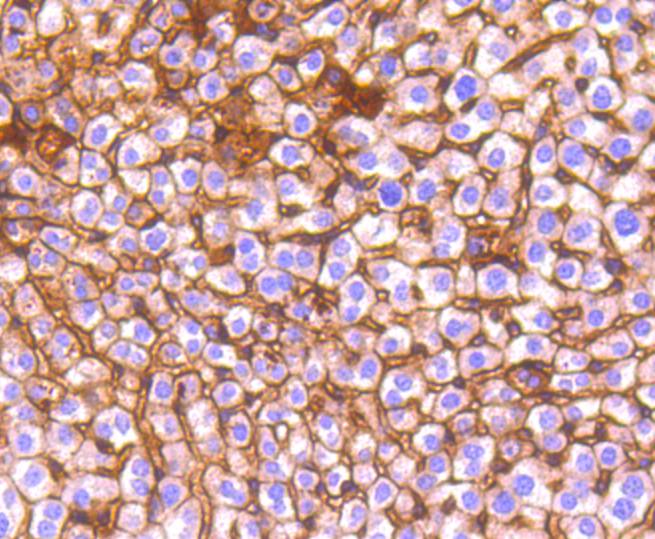
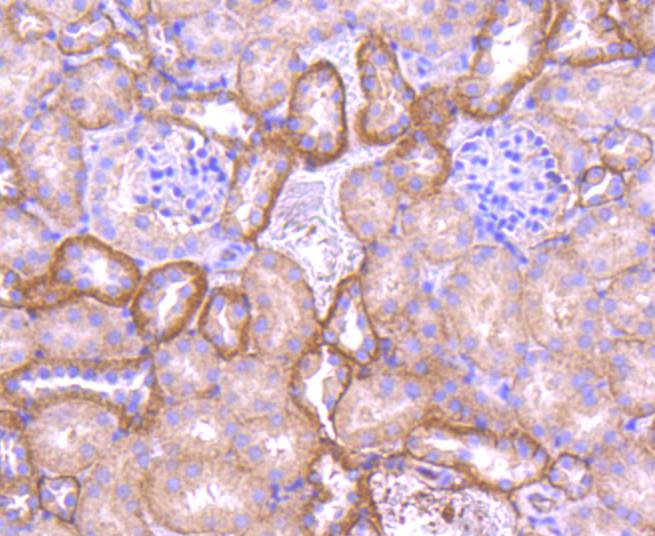
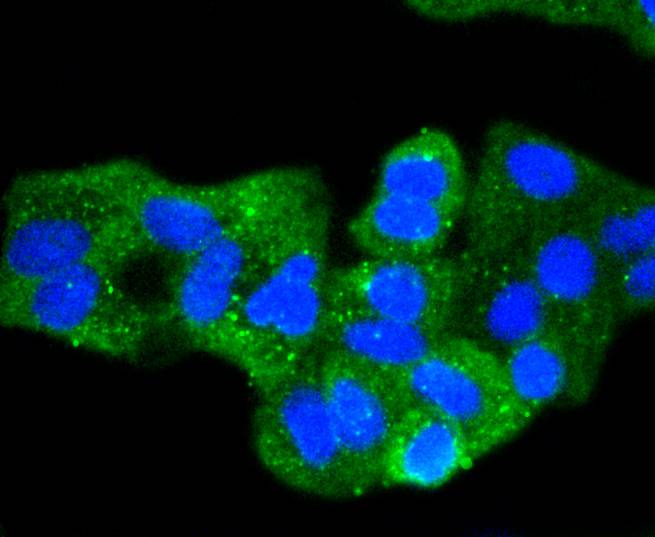
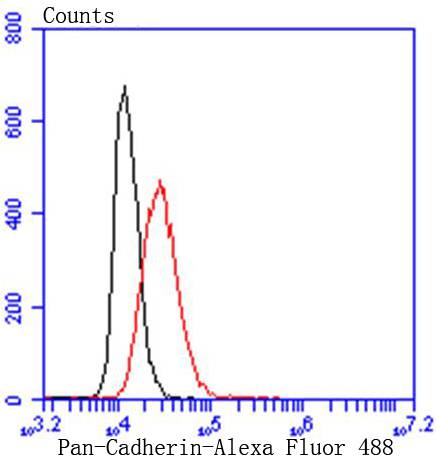
 Yes
Yes



